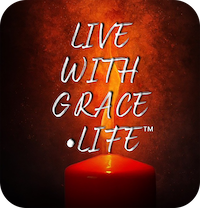Resilience is all about being able to overcome the unexpected. Sustainability is about survival. The goal of resilience is to thrive. ~ Jamais Cascio
I like this thought: “Resilience is all about being able to overcome the unexpected. The goal of resilience is to thrive.”
 I don’t like this thought: “Resilience is bouncing back from adversity.” When we lose a family member or friend, the suggestion that I should bounce back is almost insulting to me. In my way of thinking, bouncing has to do with trampolines or playground balls, fun stuff. Bouncing happens immediately when a person lands on a trampoline or a playground ball hits the pavement. I will lay this out there: grief is NOT fun. To work through grief and all its various facets takes a lot of hard work. It’s not immediate.
I don’t like this thought: “Resilience is bouncing back from adversity.” When we lose a family member or friend, the suggestion that I should bounce back is almost insulting to me. In my way of thinking, bouncing has to do with trampolines or playground balls, fun stuff. Bouncing happens immediately when a person lands on a trampoline or a playground ball hits the pavement. I will lay this out there: grief is NOT fun. To work through grief and all its various facets takes a lot of hard work. It’s not immediate.
But it is overcoming the unexpected.
To consider the goal of resilience is to be able to thrive in our lives once again can seem disrespectful to those whom we’ve lost. But is it? This was a big question as we sat around the table and discussed the possibility of thriving once again. What helped me get over the feeling that I would be disrespecting my father, disrespecting my son, and disrespecting my husband was to “put myself in their shoes.” I asked myself, “If I were the one who was gone, would I want my friends and family moping around in grief and sadness, unable to do anything meaningful again, unable to laugh again?” My answer was a resounding, “No!” So, since I had given myself permission to thrive, based on the character of my lost loved one, I began to pursue overcoming the grief related to their deaths.
But how do we develop greater resilience? We need to remember the times we were overwhelmed, the times when we didn’t think we could make it through sorrow, the times when we believed there was no way to overcome the situation because everything seemed out of our control, yet we overcame, and we came back stronger. We do this one day at a time. And, if we miss a day of reminding ourselves of our successes, we begin again the next day, and the day after that. We tell ourselves, “I overcame that adversity, I can overcome this one too!”
Gratitude helps us do that – it rewires our brains to have a more positive outlook. Authenticity also helps us do that – we figure out who we are once again. Creativity helps us do that too – we can look at the obstacle of grief from a different angle and find new ways to “attack” the adversity of grief.
So, let’s build resilience, one day at a time, one memory of how we’ve overcome at a time, one statement to ourselves that “I overcame that adversity, I will overcome this too!” at a time.
Blessings on your journey,
Cindy

0 Comments